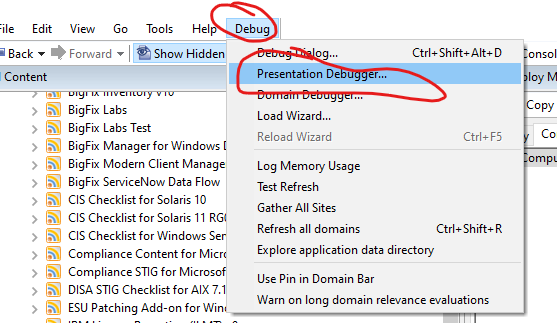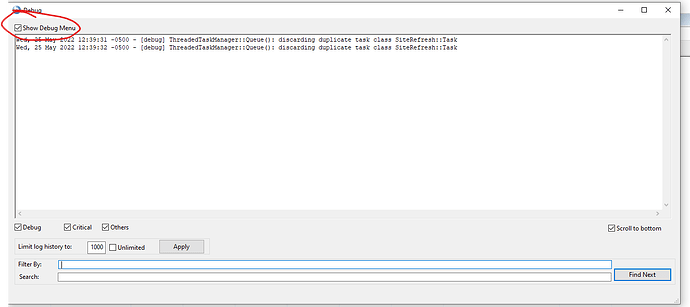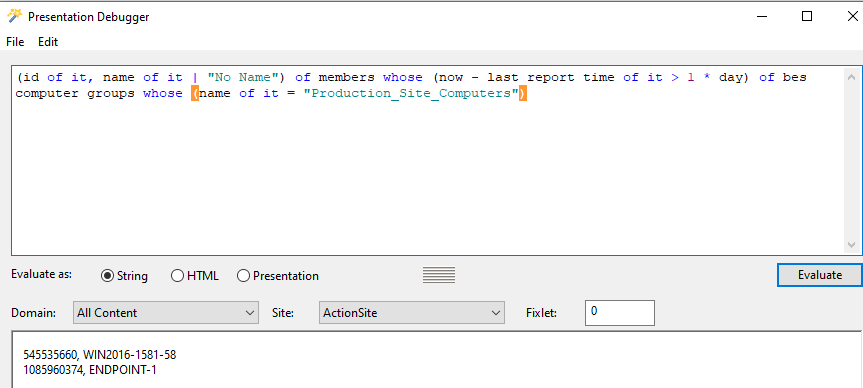I’m afraid there’s a difference between “client relevance” (evaluated by the client - Properties, Analysis Properties, Fixlets, Tasks, Computer Groups, etc.) and “Session Relevance” (evaluated by the Server - in Console Dashboards or Web Reports or REST API queries). A bit more detail at Besclient version relevance - #2 by JasonWalker
There are a couple of problems with what you’re trying to see, even if this could be done in terms of Client Relevance. You have the whose() filter applied to ‘sites’ when it should really be applied to the ‘computer’. And, since this evaluates on the client, well…if a client is not reporting, it can’t tell you that it’s not reporting ![]()
In Client Relevance, ‘member of group 52 of sites’ would give a True/False - the computer is a member, or it’s not. You could combine that with member of group 52 of sites AND now - last report time > 5 * minute to still give a True/False, but again, that’s only available on the client itself - if it’s not reporting, it can’t tell you that it’s not reporting.
What you need for this is Session Relevance - where you’re asking the Server about the last report times of the clients.
Fortunately, the Session Relevance for this case is pretty straightforward. In fact, in Session Relevance, you can get the names of the Computer Groups, Sites, and all of the previously-reported properties for the computer. So a query may look like
(id of it, name of it | "No Name") of members whose (now - last report time of it > 1 * day) of bes computer groups whose (name of it = "Production_Site_Computers")
So, how to test Session Relevance? With the BigFix Console open, hit CTRL-ALT-SHIFT-D to open the ‘Debug Options’ menu, then click the checkbox for ‘Show Debug Menu’
That adds a new Debug menu to the top of the Console. Open Debug → Presentation Debugger

Now you can test your Session Relevance in the top pane, hit ‘Evaluate’, and see results in the bottom pane:
When you’ve tuned your query and you’re ready to send it via the API, you may need to URL-encode your query depending on the tool you’re using. Python and PowerShell will generally do this for you, but the browser search bar will not; ‘curl’ can do the encoding for you if you keep the query in a separate file and use the ‘–data-urlencode’ parameter when sending it.

